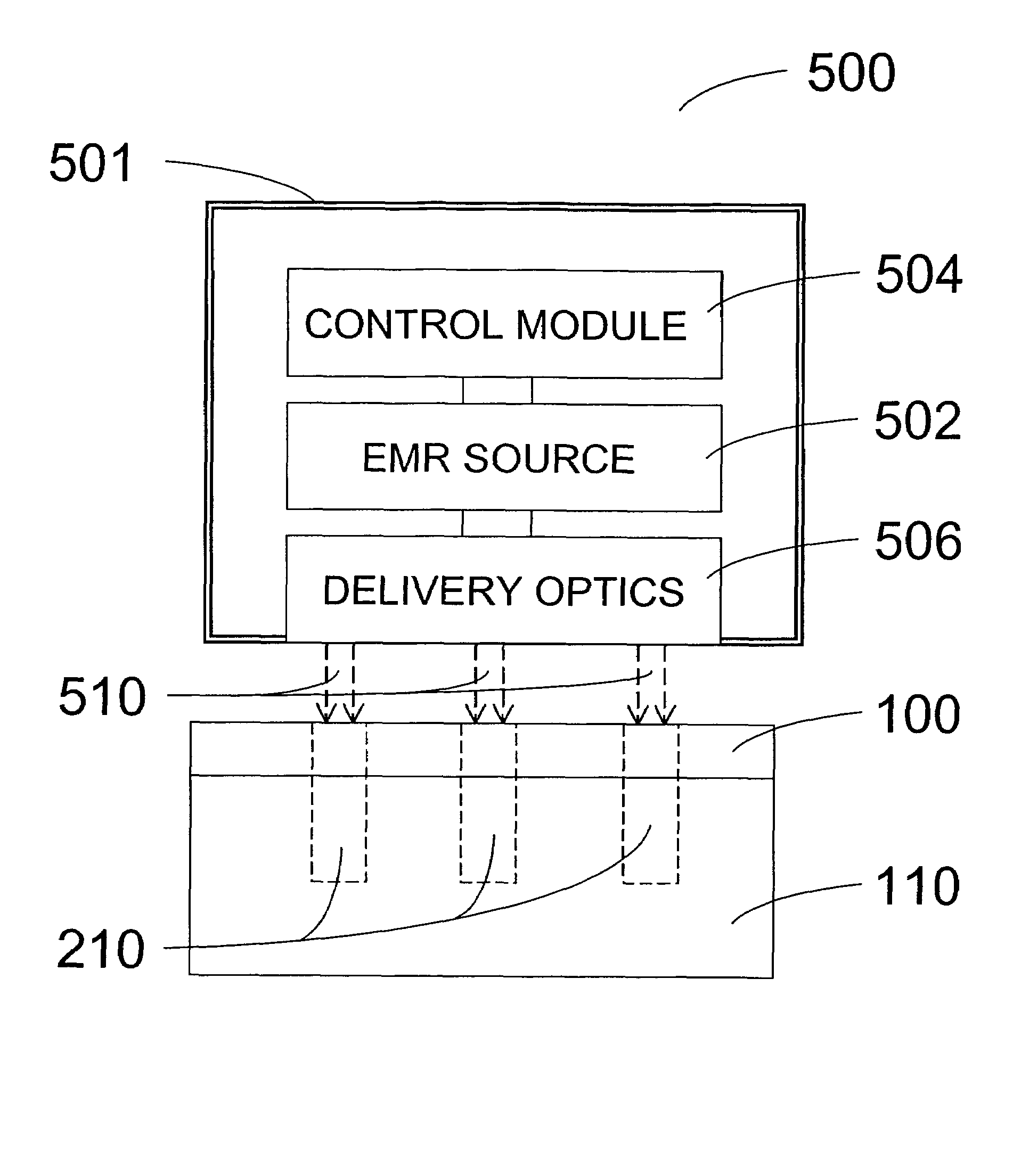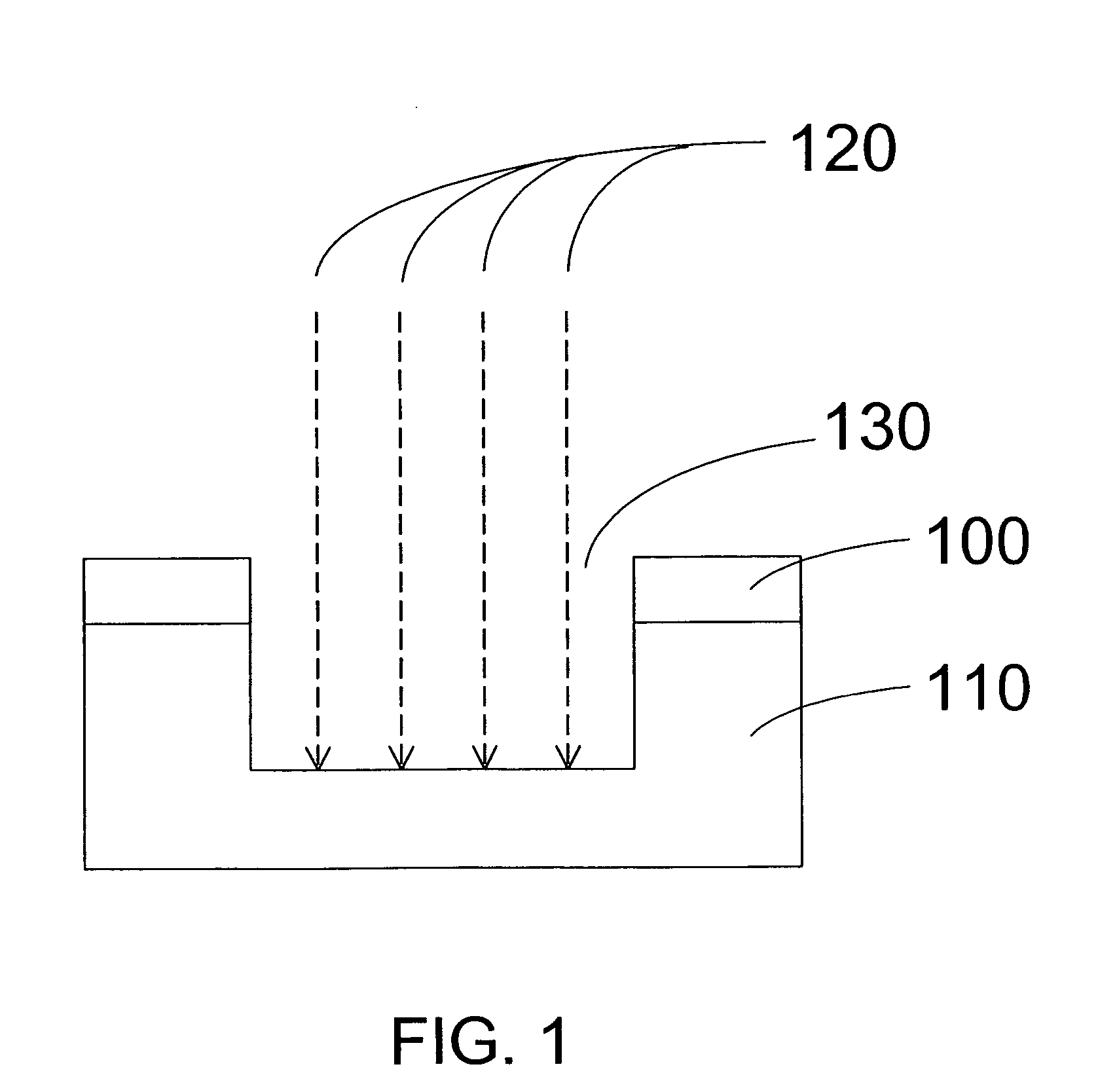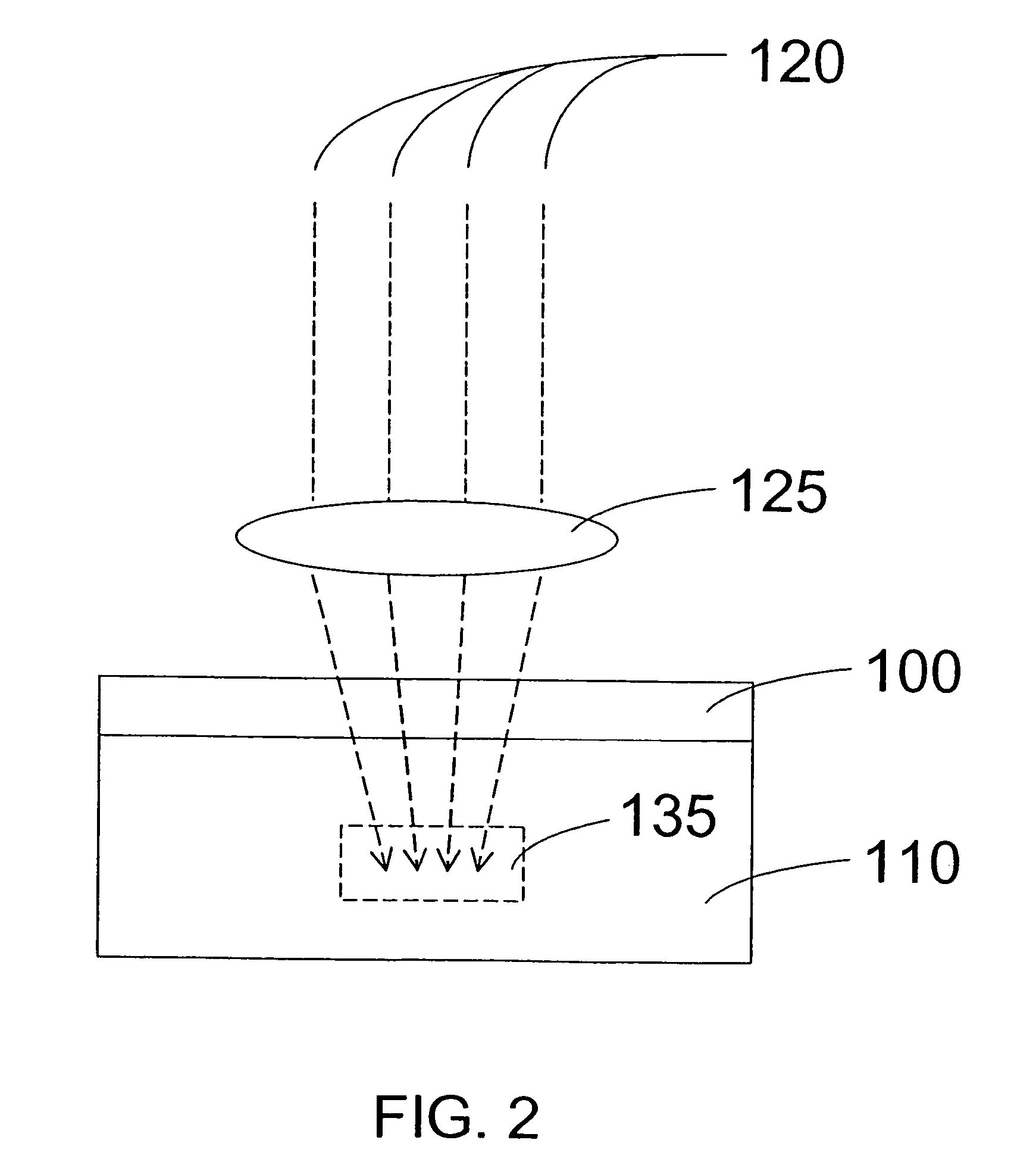Method and apparatus for dermatological treatment
a dermatological treatment and skin technology, applied in the field of improved skin treatment methods, can solve the problems of major drawbacks, edema, burning discomfort, oozing, etc., and achieve the effects of simple manufacture and use, effective and safe treatment, and repair or alleviation of skin defects
- Summary
- Abstract
- Description
- Claims
- Application Information
AI Technical Summary
Benefits of technology
Problems solved by technology
Method used
Image
Examples
Embodiment Construction
[0035]In accordance with one embodiment of the present invention, the epidermis, the dermis, or both the epidermis and dermis may be damaged in regions that are small in at least one dimension along the surface of the skin, where ‘small’ denotes a size less than about one mm, to achieve the desired effects of wound healing and tissue remodeling.
[0036]In one preferred embodiment of the invention, regions of damaged tissue are created in both the dermis and epidermis for reasons that will be described below. FIG. 3 depicts a cross section of dermal tissue comprising epidermal layer 100 and dermal layer 110, treated in accordance with a present embodiment of the invention. As shown in FIG. 3, regions of damaged tissue 210 are created in the epidermis and the dermis by beams of electromagnetic energy 120. In contrast to LSR and NDR, where the purpose is to achieve homogeneous damage at a particular depth within the skin (see FIGS. 1 and 2 respectively), in at least one embodiment of the...
PUM
 Login to View More
Login to View More Abstract
Description
Claims
Application Information
 Login to View More
Login to View More - R&D
- Intellectual Property
- Life Sciences
- Materials
- Tech Scout
- Unparalleled Data Quality
- Higher Quality Content
- 60% Fewer Hallucinations
Browse by: Latest US Patents, China's latest patents, Technical Efficacy Thesaurus, Application Domain, Technology Topic, Popular Technical Reports.
© 2025 PatSnap. All rights reserved.Legal|Privacy policy|Modern Slavery Act Transparency Statement|Sitemap|About US| Contact US: help@patsnap.com



